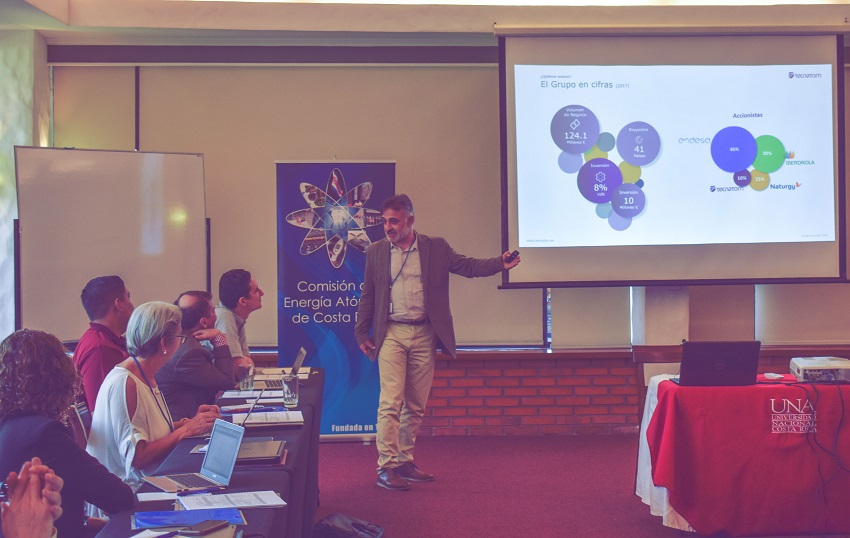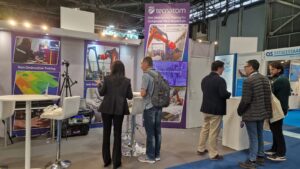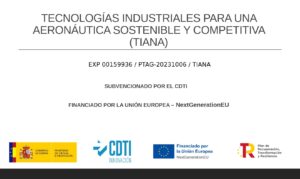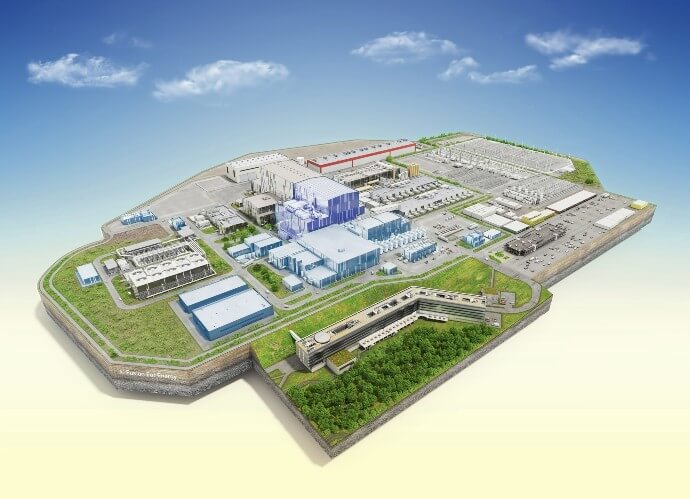The International Atomic Energy Agency (or IAEA) recently gave a School of Nuclear Knowledge Management workshop aimed at professionals in Latin America. Tecnatom took part as a workshop speaker.
This School is the first of its kind to be organised in the Central America and Caribbean region and it was held in Costa Rica.
22 professionals from eight different countries in the region took part, as well as experts from Spain, Argentina, Brazil and Costa Rica.
The IAEA also noted that half of the participants, and over 60% of the experts in attendance were females, a clear example of the efforts being made towards gender equality within the region’s nuclear industry.
The organisation of this course, which included some of the most recognised specialists in the field, is based around an IAEA regional technical cooperation project. It also had the support of the Latin American Network for Education in Nuclear Technology and was organised by the Physics Department of the National University of Costa Rica and the Atomic Energy Commission of Costa Rica.
Nuclear knowledge management provided at the IAEA school
The objective of the School organised by IAEA was to offer all the participants a basic notion of nuclear knowledge management. During the classes the attendees learnt about strategies and tools that could be used to identify risks which may pose a potential loss of critical knowledge, as well as mechanisms and methods for the capturing and retaining of said knowledge.
Other issues addressed on the course were the influence of an organisational culture on a knowledge management programme, and the importance and the relationship of intellectual property in this field.
The teaching method combined a brief prior training phase using online resources with a subsequent classroom learning phase. This method allowed the participants to apply the theories and knowledge they had acquired.
Benefits of the nuclear knowledge management course
The School of Nuclear Knowledge Management is mainly aimed at young professionals within the nuclear sector, who may or who already have responsibilities related to nuclear knowledge.
Lydia Paredes Gutiérrez, from the Mexican National Institute of Nuclear Research and president of Regional Cooperation Agreement for the Promotion of Nuclear Energy (which is also sponsored by the IAEA), stated that what she took from the course is that the creation of knowledge is becoming increasingly faster. According to her, we need to get back those generations that have already received their training and ensure the continuous transfer of their knowledge to future generations.
David Drury, head of the Nuclear Knowledge Management Department at IAEA, also stated that, while there may be differences among countries in regard to technological development and nuclear applications, in practice, the organisational dilemmas are almost the same.
For example, there is a risk of losing the knowledge of retiring professionals. In a similar fashion there are sometimes generational gaps that the hinder work being carried out correctly.
Thanks to the correct knowledge management and the use of tools to help us with this task, we can gain significant extra benefits, such as increased safety in existing nuclear facilities and the effective application of current knowledge for the development of innovative industry initiatives.
At Tecnatom, we are specialists in this field, and we have a comprehensive innovative knowledge management tool, SOUL. It is able to support all kinds of organisations to capture and retain knowledge which helps push towards more efficient company process development.






